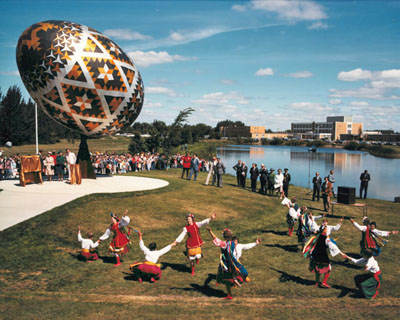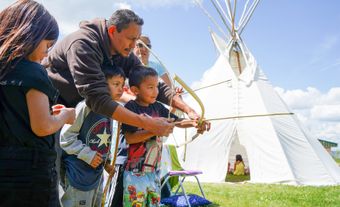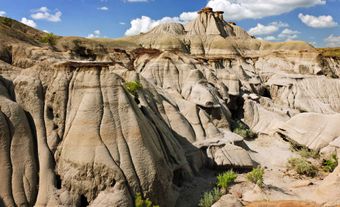Indigenous Peoples and Treaties
Vegreville is located on the traditional territory of the Siksikaitsitapi (Blackfoot Confederacy), Stoney Nakoda, Cree, Saulteaux (see Anishinaabe), Métis and Dene peoples. The area is covered by Treaty 6, signed in 1876.
Settlement
In 1894, French Canadian settlers arrived in the Vegreville area. They established a post office and hamlet on Birch Creek. The hamlet was named to honour the western Canadian career of Father Valentin Vegreville, a Roman Catholic Oblate missionary. Immigration from the United States, Eastern Canada and Europe followed. The prairie provinces, including the Vegreville area, were also the destination for the first major wave of Ukrainian immigrants to Canada, between 1891 and 1914.Today, just over 35 per cent of Vegreville residents cite Ukrainian as an ethnic origin, according to the 2016 census.
The Canadian Northern Railway arrived in 1905. Vegreville moved immediately to the new railway townsite, some 8 km to the northeast.
Cultural Life

Vegreville’s French and Ukrainian heritage are noticeable in distinctive churches, schools, community halls and residential clusters. The Ukrainian Pysanka Festival is an annual tradition, and the town boasts a giant pysanka (Easter egg), unveiled in 1978.

 Share on Facebook
Share on Facebook Share on X
Share on X Share by Email
Share by Email Share on Google Classroom
Share on Google Classroom


